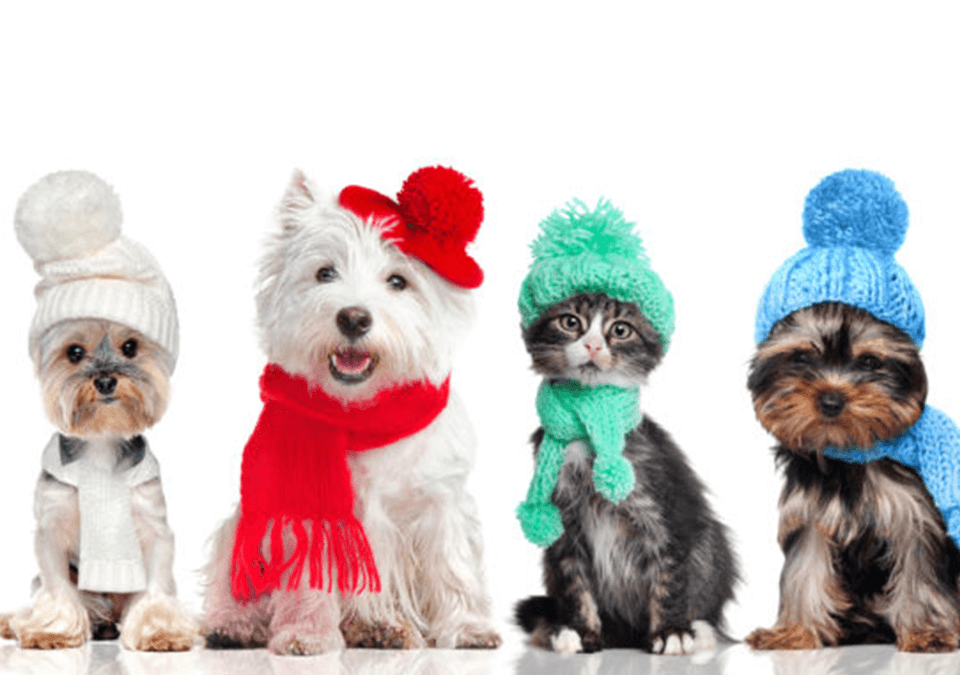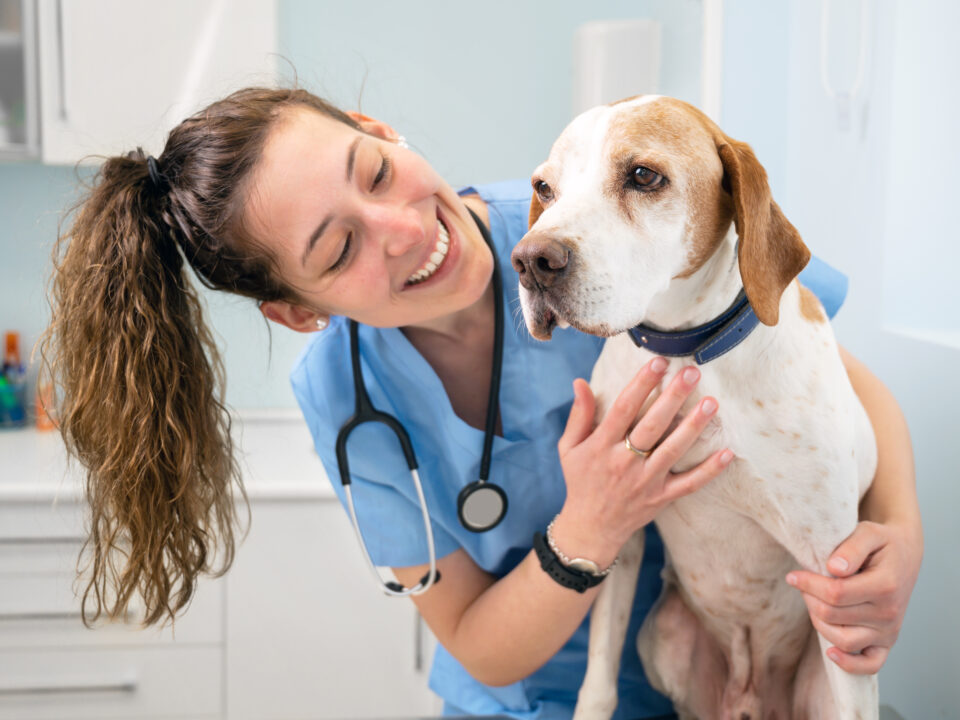Warm Up on Winter Safety

Winter brings to mind cozy nights by the fire, snowy days filled with fun, and chilly sweater weather to bundle up for, but did you know winter can also bring some dangers to your pet you may not think about? We may all know about slipping on ice, keeping warm, and being careful of winter hazards like antifreeze, but there are many other things to think about when it comes to keeping your pet safe this winter!
Sweater Weather
When those temps start dropping, we all break out our favorite sweaters and sweatshirts! But did you think about your dog? Many breeds are more than capable of adapting to chilly temps, especially with our climate controlled houses, but keep in mind that they can get cold too. If you have a short haired (or hairless!) breed, consider trying some sweaters on for size to keep them toasty warm on walks or especially cold days. Got an especially furry friend or a breed meant for the cold like a husky? They still need some extra attention in the snow and ice! Check those paws for ice or snow sticking between toes and run a comb over longer fluffy bits to be sure nothing is stuck in there either. If you have a dog that needs haircuts, it’s tempting to leave them longer for those colder months! Just keep in mind that longer fur means more grooming – schedule more frequent appointments with your groomer to keep long hair tangle free or increase the amount of time you spend combing your pup out. Matted fur is unhealthy and uncomfortable for pets, so if maintaining that longer coat is a bit too much, keep them short and get them a cute sweater instead!
Holiday Treats
Winter is chock full of holidays with tons of tasty traditional treats! Letting your pup join in on the festivities can be fun, but keep them safe by being sure they aren’t eating what they shouldn’t. Avoid turkey skin and bones, ham bones, chocolate, grapes, and nuts. Also keep an eye out for anything salty or seasoned with onions or garlic! Make your pet their own holiday meal with plain steamed pumpkin, sweet potatoes, or yams, plain carrots or green beans, and some unseasoned turkey. They can join in dessert too with some plain cranberries and a bit of green yogurt or small amount of whipped cream! Be careful not to overdo it – lots of rich foods and treats their tummies aren’t used to can cause upset stomachs and stinky gas.
Outdoor Fun
Nothing says winter like waking up to a snowy yard and running out to go play! Let your dog join in the fun with the family but be sure to keep a few things in mind. Paws can be especially sensitive to icy cold, so consider getting your dog used to wearing booties to keep them safe! These can also come in handy on walks, as many salts put down to keep ice from forming are not safe for puppy paws. If you find your walks getting darker and darker as the days get shorter, deck your dog out in reflective gear! Many companies make light up collars and safety coats so that you can still enjoy exercising when the sun is gone. Dogs can also get frostbite, so if you live in a super cold climate be aware of how long your pet spends outside. Areas like the nose, tail, ears, and paws are especially susceptible. If you notice those areas getting cold, stiff, or discolored, or your dog seems extra sensitive there, get them to a warm area and call your vet for advice. Don’t try to use a hairdryer or heating pad to warm them up fast! That can cause more damage to the area.
Dangerous Decorations
We all love decorating for festive holidays, but keep in mind that not all decorations are pet safe. Tiny tree ornaments can be swallowed, and tinsel especially seems to be irresistible for cats and dogs looking to play with the new fun things their humans are putting up. When decorating, be sure items are out of your pet’s reach and safely put where they can’t be knocked over. Some classic holiday plants can be toxic too! Don’t move those mums indoors – mums can poison pets that try to sneak a taste. Poinsettia is a plant that screams Christmas but keep it out of reach! Although not typically deadly, eating this plant can cause stomach and mouth irritation that can lead to vomiting and diarrhea. Amaryllis and other lilies are also unsafe! Even the pollen can cause issues for cats especially and lead to stomach issues, excessive drooling, and tremors. Stick to the fake plants to be sure your pet stays safe!
Sources
Klein, Dr Jerry (2021, February 18). Can Dogs Get Frostbite?. American Kennel Club. Retrieved November 11, 2022, from https://www.akc.org/expert-advice/health/can-dogs-get-frostbite
Kanuckel, Amber (2022, August 1). 30 Common Toxic Houseplants. Farmer’s Almanac. Retrieved November 11, 2022, from https://www.farmersalmanac.com/toxic-houseplants-30149
Tigar, Lindsay (2022, November 7). Thanksgiving Foods Your Dog Can and Can’t Eat This Holiday. Daily Paws. Retrieved November 10, 2022, from https://www.dailypaws.com/dogs-puppies/dog-nutrition/what-can-dogs-eat/thanksgiving-foods-for-your-dog-and-what-to-avoid
Amundson, Candi CVT. Winter Hazards for Your Pet. Pet Poison Helpline. Retrieved November 10, 2022, from https://www.petpoisonhelpline.com/uncategorized/winter-hazards-pet/



